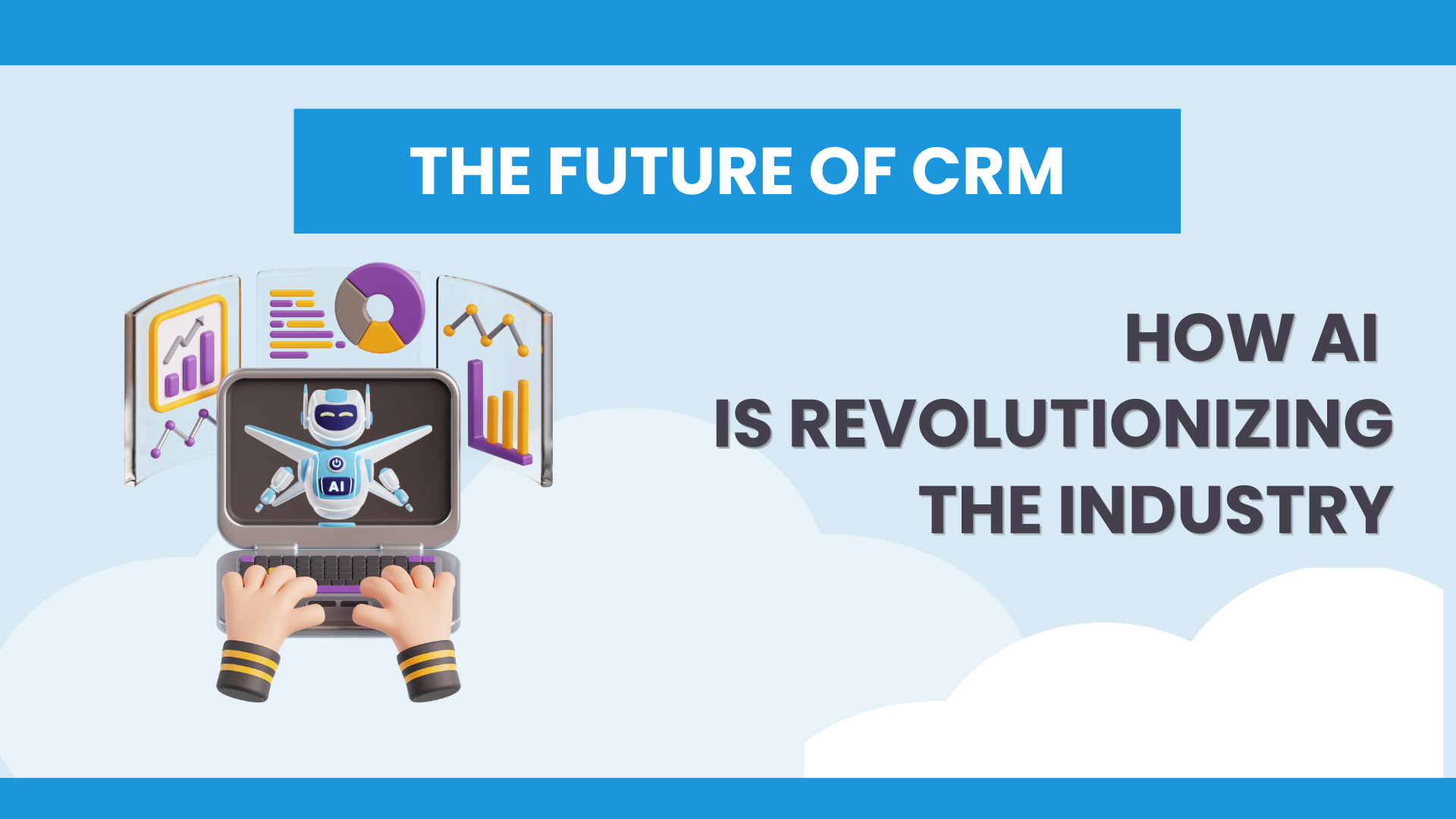The integration of Artificial Intelligence (AI) into Customer Relationship Management (CRM) systems has revolutionized the way businesses interact with their customers.
Modern CRMs now leverage AI to analyze vast amounts of customer data, providing insights that enable personalized marketing, improved customer service, and enhanced sales forecasting.
As AI technology continues to evolve, its role in CRMs is becoming increasingly pivotal, transforming these systems into powerful tools that drive business growth and customer satisfaction. This article explores the current and future impact of AI on modern CRMs, highlighting its benefits and potential applications.
The Evolution of Customer Relationship Management with AI
The integration of Artificial Intelligence (AI) into modern Customer Relationship Management (CRM) systems has revolutionized the way businesses interact with their customers.
AI enhances CRM capabilities by providing advanced data analysis, automating routine tasks, and offering personalized customer experiences. This fusion of AI and CRM is transforming the landscape of customer relationship management, making it more efficient, predictive, and customer-centric.
Enhanced Data Analysis and Insights
AI-powered CRMs can process vast amounts of customer data quickly and accurately, providing businesses with deep insights into customer behavior and preferences. This enables companies to make informed decisions, tailor their marketing strategies, and improve customer satisfaction.
The advanced analytics capabilities of AI-driven CRMs help in identifying patterns and trends that might be missed by human analysis alone.
Automation of Routine Tasks
One of the significant benefits of incorporating AI into CRMs is the automation of routine and repetitive tasks.
AI can handle tasks such as data entry, lead qualification, and follow-up emails, freeing up human resources for more strategic and creative work. This not only increases productivity but also reduces the likelihood of human error, ensuring that customer interactions are consistent and reliable.
Personalization through Predictive Analytics
AI-driven CRMs use predictive analytics to anticipate customer needs and preferences, allowing businesses to offer highly personalized experiences.
By analyzing customer data and behavior, AI can predict future actions, enabling companies to proactively address customer needs, improve customer retention, and increase sales opportunities.
| AI Feature | Benefit to CRM | Impact on Business |
|---|---|---|
| Advanced Data Analysis | Provides deep insights into customer behavior | Improves decision-making and customer satisfaction |
| Automation of Routine Tasks | Frees up resources for strategic work | Increases productivity and reduces errors |
| Predictive Analytics | Anticipates customer needs and preferences | Enhances customer experience and increases sales |
What is the future of AI in CRM?

The future of AI in CRM is highly promising, as it is expected to revolutionize the way businesses interact with their customers.
AI-powered CRM systems will enable companies to analyze vast amounts of customer data, identify patterns, and make predictions about future behavior. This will allow businesses to personalize their marketing efforts, improve customer service, and ultimately drive revenue growth.
Enhanced Customer Insights
AI-powered CRM systems will provide businesses with enhanced customer insights by analyzing data from various sources, including social media, customer feedback, and transactional data.
This will enable companies to gain a deeper understanding of their customers’ needs and preferences.
- Analyzing customer behavior and preferences to identify trends and patterns
- Using machine learning algorithms to predict customer churn and identify opportunities to upsell or cross-sell
- Providing a 360-degree view of the customer by integrating data from multiple sources
Personalized Customer Experiences
AI-powered CRM systems will enable businesses to deliver personalized customer experiences by leveraging data and analytics to tailor their marketing efforts and customer interactions. This will result in increased customer satisfaction and loyalty.
- Using AI-powered chatbots to provide 24/7 customer support and answer frequently asked questions
- Creating personalized marketing campaigns based on customer behavior and preferences
- Offering tailored product recommendations based on customer purchase history and preferences
Automated Sales Processes
AI-powered CRM systems will automate sales processes by identifying potential leads, predicting sales outcomes, and providing sales teams with real-time insights and recommendations. This will enable sales teams to focus on high-value activities and improve their overall performance.
- Using machine learning algorithms to identify potential leads and predict sales outcomes
- Providing sales teams with real-time insights and recommendations to inform their sales strategies
- Automating routine sales tasks, such as data entry and follow-up emails
What are three commonly used examples of AI in CRM?
Three commonly used examples of AI in CRM are predictive analytics, chatbots, and personalized customer experiences. These AI-powered tools help businesses to streamline their customer relationship management processes, improve customer engagement, and make data-driven decisions.
Predictive Analytics in CRM
Predictive analytics is a type of AI that uses historical data, statistical algorithms, and machine learning techniques to forecast future customer behavior. This helps businesses to anticipate and prepare for potential sales opportunities, identify potential churn risks, and personalize their marketing efforts.
- Predicting customer churn by analyzing usage patterns and customer interactions
- Forecasting sales by analyzing historical sales data and seasonal trends
- Identifying potential leads by analyzing customer demographics and behavior
Chatbots in CRM
Chatbots are AI-powered virtual assistants that can interact with customers, answer their queries, and provide support. They can be integrated with various CRM systems to provide a seamless customer experience. Chatbots can help businesses to reduce their customer support costs, improve response times, and enhance customer engagement.
- Providing 24/7 customer support by answering frequently asked questions
- Routing complex customer queries to human customer support agents
- Helping customers with simple transactions, such as booking appointments or making payments
Personalized Customer Experiences in CRM
AI-powered personalization helps businesses to create tailored customer experiences by analyzing customer data, behavior, and preferences. This enables businesses to deliver relevant content, offers, and recommendations that resonate with their customers. Personalization can be applied to various touchpoints, including email marketing, social media, and customer service interactions.
- Creating personalized email campaigns based on customer preferences and behavior
- Recommending relevant products or services based on customer purchase history
- Tailoring customer service interactions based on customer history and preferences
What is the role of AI in modern technology?

The role of AI in modern technology is multifaceted and has become increasingly pervasive across various industries. AI refers to the development of computer systems that can perform tasks that typically require human intelligence, such as learning, problem-solving, and decision-making.
The integration of AI into modern technology has enabled the creation of more sophisticated and efficient systems that can automate complex processes, improve accuracy, and provide valuable insights.
Enhancing Automation and Efficiency
AI has revolutionized the way businesses operate by automating routine and repetitive tasks, freeing up human resources for more strategic and creative work. This has led to significant improvements in productivity and efficiency. The key benefits of AI-driven automation include:
- Reduced operational costs due to minimized manual labor
- Improved accuracy and reduced errors in tasks such as data processing
- Enhanced customer experience through 24/7 support via chatbots and virtual assistants
Driving Innovation and Insights
AI technologies, including machine learning and deep learning, have enabled the analysis of vast amounts of data, uncovering patterns and insights that were previously inaccessible. This has driven innovation across various sectors, from healthcare and finance to transportation and education. Some of the ways AI is driving innovation include:
- Predictive analytics for forecasting market trends and customer behavior
- Personalized recommendations and services tailored to individual preferences
- Advanced diagnostic tools for early disease detection and treatment
Transforming Industries and Business Models
The impact of AI extends beyond process optimization, as it is also transforming industries and business models. AI is creating new opportunities for growth and revenue streams, while also disrupting traditional practices. Key areas where AI is having a transformative impact include:
- The development of autonomous vehicles and smart transportation systems
- The emergence of smart homes and cities, driven by IoT and AI integration
- The evolution of healthcare towards more personalized and predictive medicine
Can AI replace a CRM?

The question of whether Artificial Intelligence (AI) can replace Customer Relationship Management (CRM) systems is complex and multifaceted. CRM systems are designed to manage a company’s interactions with current and potential customers, using data analysis to improve business relationships.
AI, on the other hand, is a technology that enables machines to perform tasks that typically require human intelligence, such as learning, problem-solving, and decision-making. While AI can certainly enhance the capabilities of CRM systems, whether it can fully replace them is a matter of debate.
The Role of AI in CRM Systems
AI can significantly enhance the functionality of CRM systems by providing advanced data analysis, predictive modeling, and automation capabilities.
This enables businesses to gain deeper insights into customer behavior, preferences, and needs, allowing for more targeted and effective marketing, sales, and customer service efforts.
Some key ways AI is used in CRM include:
- Predictive analytics to forecast customer behavior and identify new sales opportunities
- Automated data entry and processing to reduce manual errors and increase efficiency
- Personalized customer experiences through tailored recommendations and communications
Limitations of AI in Replacing CRM
While AI can greatly enhance CRM capabilities, there are several reasons why it is unlikely to fully replace CRM systems. For one, CRM involves not just data analysis, but also human interaction and judgment, which are critical in building and maintaining customer relationships.
AI systems lack the emotional intelligence and empathy required to fully understand and respond to customer needs in the way a human can.
Some limitations of AI in this context include:
- Lack of human touch and emotional intelligence in customer interactions
- Inability to fully understand the nuances of human behavior and decision-making
- Dependence on high-quality data to function effectively, which is not always available
Future of AI and CRM Integration
The future of CRM is likely to involve even greater integration with AI, as businesses seek to leverage the strengths of both technologies to improve customer relationships and drive growth.
As AI continues to evolve, we can expect to see even more sophisticated applications in CRM, such as advanced chatbots and virtual customer assistants.
Some potential developments in this area include:
- More widespread use of AI-powered chatbots and virtual assistants in customer service
- Increased use of machine learning to personalize customer experiences and improve sales forecasting
- Greater integration of AI with other business systems, such as marketing automation and ERP systems
Frequently Asked Questions
What is the role of AI in modern CRMs?
AI in modern CRMs enhances customer interactions and streamlines sales processes. It analyzes data to predict customer behavior, identify trends, and provide personalized experiences. AI-powered CRMs also automate routine tasks, freeing up time for sales teams to focus on high-value activities. This integration improves sales forecasting, customer satisfaction, and overall business performance.
How does AI improve sales forecasting in CRMs?
AI improves sales forecasting in CRMs by analyzing historical data, seasonal trends, and real-time market conditions. It identifies patterns and predicts future sales performance, enabling businesses to make informed decisions. AI-driven forecasting also helps to reduce manual errors, increase accuracy, and provide actionable insights to sales teams, allowing them to adjust their strategies accordingly.
Can AI in CRMs enhance customer experience?
AI in CRMs can significantly enhance customer experience by providing personalized interactions and anticipating customer needs. It analyzes customer data to offer tailored recommendations, improving engagement and satisfaction. AI-powered chatbots and virtual assistants also enable 24/7 customer support, responding to queries and resolving issues promptly, and helping to build strong, lasting customer relationships.
What are the benefits of integrating AI into existing CRMs?
Integrating AI into existing CRMs offers numerous benefits, including improved sales performance, enhanced customer experience, and increased operational efficiency. AI automates routine tasks, provides actionable insights, and enables data-driven decision-making. It also helps businesses stay competitive by leveraging the latest technologies and staying ahead of the curve in terms of innovation and customer expectations.


